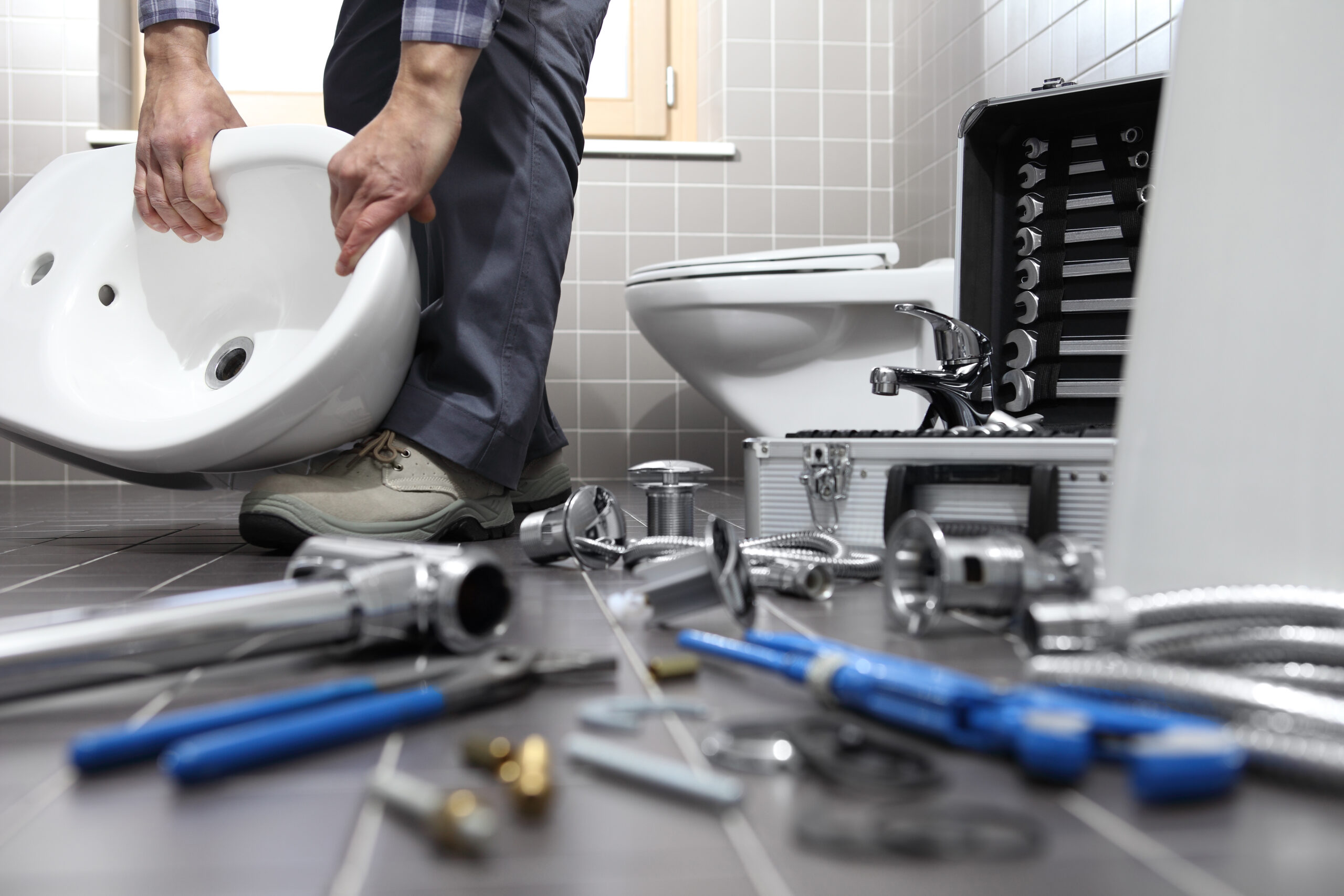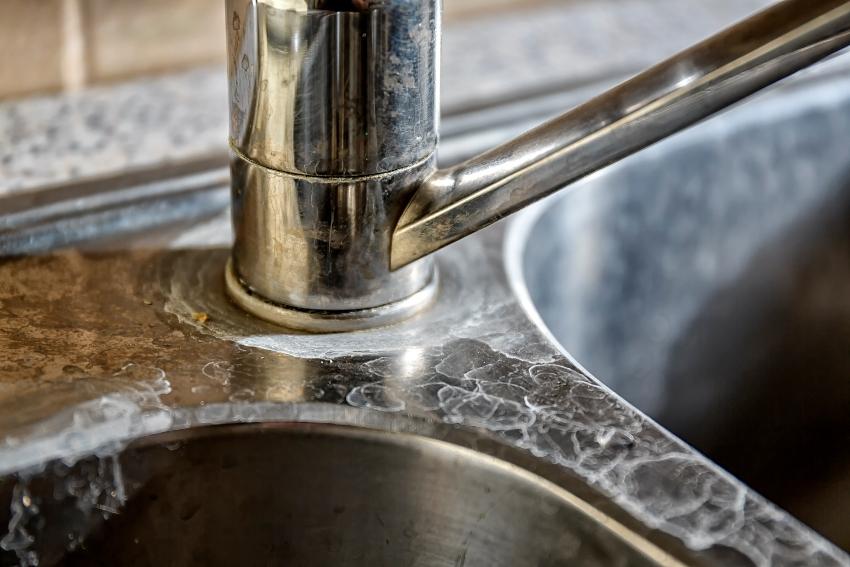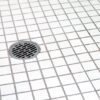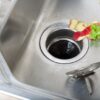Category: Plumbing Tips

5 Beneficial Spring Plumbing Projects
Spring is in the air and summer is on the horizon. As we work through spring cleaning and prepare our plumbing for the transition, you may be wondering what else you can do beyond simple maintenance. Read on to learn more about five beneficial spring plumbing projects to consider for your home.
1. Repair or Replace Sump Pump
The sump pump protects your home against flooding, so you want to address concerns ASAP. Sump pumps typically last around 10 years, but you should test them each spring by dumping a bucket of water into the pit. Call Robillard for professional inspection, repair, and/or replacement of your sump pump and battery backup should you notice any issues.
2. Update Faucets and Fixtures in Bathrooms and Kitchen
Installing new faucets and fixtures gives your home an updated, stylish look. Plus, since old fixtures can crack and/or rot without obvious signs of damage, upgrading them can also help the plumbing run properly.
3. Replacing and repairing outside faucets
If you notice there is dripping or notice leaks inside your home when a hose is turned on, there is potentially a pipe that froze in the winter and cracked when the temperature began to warm. This needs to be replaced as soon as possible. Also make sure that you turn your main water valve off and on, because if it is left untouched, it can become difficult to turn on over time.
4. Schedule Professional Drain Cleaning
Without proper drainage, your plumbing could experience wastewater backups or other more serious (and more costly) issues. Prevent these problems by having your drains professionally tested and cleaned as part of your spring-cleaning checklist.
And while you’re at it…
5. Have Your Pipes Professionally Inspected
The piping in your plumbing system isn’t indestructible, and it’s not always easy to tell if major repairs or replacements are needed. The best move is to schedule a professional inspection, especially if you’re experiencing decreased water pressure, irregular noises and smells, and/or other plumbing issues more frequently.
We’ve already seen Minnesota’s unpredictable weather in action this season, and summer is right around the corner. As you prepare your home for the transition, consider adding these beneficial spring projects to the list. And for professional assistance and service, rely on the experienced master plumbers at Robillard.
Contact us to learn more and for all your plumbing service and product needs.
Read More
What is Hard Water? And Other Water Softener FAQs
You may have heard that water softeners help alleviate “hard water” problems, but do you know what they are and why that’s important? If not, don’t worry. We’ve answered some water softener FAQs to help. Read on to learn more.
What Is Hard Water?
Water naturally contains some amount of minerals, like calcium and magnesium. However, if it contains too much of these minerals (typically above 7 grains per gallon or 120 mg/L), the water is considered “hard.” Water that has the appropriate levels is “soft.”
What Are the Warning Signs of Hard Water, and Why Is It Bad?
The higher levels of minerals can wreak havoc on your body, plumbing and home appliances, and more. Warning signs and issues associated with hard water include:
- White, chalky scale buildup (from the excess minerals) in pipes and appliances that decrease performance and lifespan
- Difficulty lathering and fully rinsing soap and shampoo, due to the excess minerals negatively reacting and reducing their cleaning effectiveness
- Dry, irritated skin and weak, brittle hair caused by residual soap and moisture-absorbing minerals left by hard water
- Faded and/or graying laundry caused by leftover mineral deposits
- Soap scum buildup and stains in sinks, bathtubs, and showers from residual soap and minerals
- Cloudy spots on dishes, as well as faucets and sinks, from residue left by calcium and magnesium
- Decreased or lack of water flow due to minerals building up and clogging pipes
- Poor performance of appliances from the increased wear of hard water on their components
If you notice any of these issues, you may be dealing with hard water. Call Robillard Plumbing to properly diagnose the issue and help select the ideal water softener for you.
What Kind of Maintenance Does a Water Softener Require?
Through an ion exchange process, water softeners use negatively charged softener salt (either potassium chloride or sodium chloride) to remove the positively charged magnesium and calcium minerals of hard water. Ensuring optimal performance requires some simple DIY maintenance:
- Follow manufacturer guidelines for maintaining proper salt levels to avoid issues caused by underfilling and overfilling.
- Break up bridge-like salt deposits to help ensure proper functionality.
- Clear sludge known as “salt mushing” from the bottom of the salt solution tank so it doesn’t clog the well.
- Clean the tank regularly (consult owner’s manual for recommended schedule) to prevent salt blockages and maintain softening performance.
For more details, visit our blog post outlining proper water softener maintenance.
What Type of Water Softener Should I Buy?
While water softeners are available in various shapes and sizes, the primary factor is the type of salt used for the ion exchange process:
- Sodium chloride softening salts tend to be more common due to the lower cost. However, they’re not ideal for individuals trying to reduce their sodium intake as they add small amounts to the water during the softening process.
- Potassium chloride softening salts are more expensive due to being more difficult to harvest. This “salt-free” option would be better for individuals with high blood pressure. It’s also the eco-friendly choice—the residual potassium in the wastewater is healthy for plants and flowers, unlike potentially harmful sodium.
While these water softener FAQs provide a solid baseline understanding, selecting the ideal size and system should be matched to your home and circumstances. Trust the master plumbers at Robillard to help you find the perfect choice and to provide professional installation.
Contact us to learn more and for all your plumbing service and product needs.
Read More


